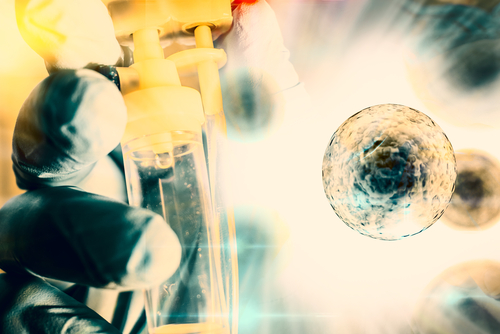Allogene Therapeutics and its partner Servier will soon launch a Phase 1/2 trial to assess the investigational cell therapy ALLO-501 in non-Hodgkin’s lymphoma patients who failed prior therapies, after the U.S. Food and Drug Administration (FDA) approved Allogene’s Investigational New Drug (IND) application.
“I am very pleased with the Allogene team’s ability to accelerate the ALLO-501 program by securing the FDA’s clearance of our IND,” David Chang, MD, PhD, president, CEO, and co-founder of Allogene, said in a press release.
ALLO-501 is a kind of cell-based therapy called CAR T-cell therapy. These therapies are usually designed to harness the patient’s own immune system into fighting cancers, by genetically modifying cells in the lab to better recognize cancer markers.
While using a patient’s cells prevents adverse reactions from the immune system, there are several drawbacks to this approach. Among them, patients need to wait a considerable amount of time before the cells are ready — which is unfeasible for those with poor prognosis — some patients might not have enough cells to work with, and most patients will not have enough cells for more of the therapy.
Allogene says that producing CAR T-cells from healthy donors could help overcome the problems of donor-derived products, and is developing several off-the-shelf products for cancer patients.
In addition to directing T-cells toward cancer cells, its products are also engineered to prevent adverse immune reactions that normally occur with donor-derived transplants — called graft-versus-host disease. These therapies are then stored for on-demand delivery to patients.
ALLO-501, a donor-derived CAR T-cell therapy that targets the CD19 molecule on B-cells, will be investigated in the ALPHA Phase 1 trial.
The trial aims to determine the therapy’s safety and tolerability in 24 patients with the most common non-Hodgkin’s lymphoma subtypes, including diffuse large B-cell lymphoma and follicular lymphoma. It is expected to begin in the first half of 2019.
Before receiving the CAR T-cells, patients will undergo a conditioning regimen that makes room for the cells while killing any remaining cancer cells. This consists of a combination of the chemotherapies fludarabine and cyclophosphamide (Flu/Cy) along with ALLO-647 — Allogene’s CD52 antibody.
Patients will be given ascending doses of ALLO-501, and then followed to assess side effects and evaluate the early potential of the therapy, including reduction in disease burden and changes in disease progression.
“This significant milestone for the company, as well as the planned initiation of the ALPHA trial, brings us one step closer to making CAR T therapy ‘on demand’ and more broadly accessible to patients when they are at a critical stage in their disease,” said Chang.
Added Patrick Therasse, MD, PhD, head of Oncology at Servier: “We are delighted that this program will soon be moving into the clinic. The upcoming clinical study will enable the teams to investigate the potential benefits of allogeneic CAR T therapy in patients with non-Hodgkin lymphoma, one of the largest hematological indications.”
Allogene, which is sponsoring ALLO-501’s programs, has exclusive rights to the therapy in the U.S., while Servier retains exclusive rights for all other countries.


